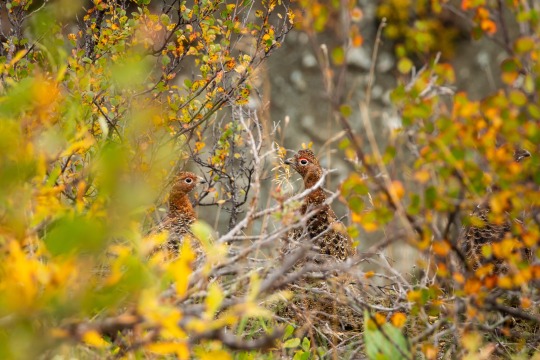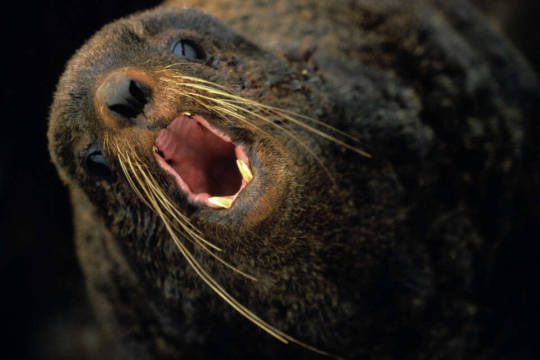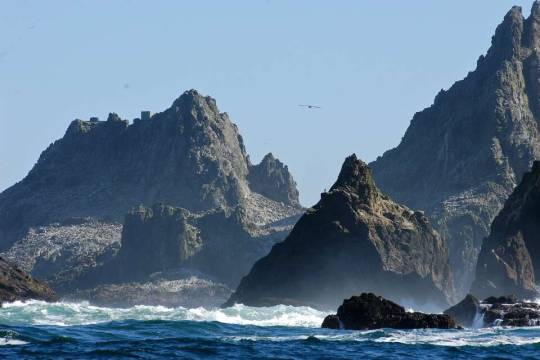#alaska wildlife
Explore tagged Tumblr posts
Text

Beautiful young fox settles down to a little nap among softly falling snow
#nature#animals#wildlife#wild animals#cute#fox#nature photography#Amy Bragg photography#Alaska wildlife#red fox#snow
31 notes
·
View notes
Video
Alaskan Brown Bear Cubs - Lake Clark National Park, Alaska by Ursula Dubrick Via Flickr: Three baby bears sleeping in Lake Clark National Park, Alaska
#wildlife#bears#baby bears#brown bears#Ursus#Actos baby brown bears#Alaska wildlife#Alaskan bears#Alaskan baby bears#Alaskan brown bears#Alaskan baby brown bears#baby animals#sleeping baby bears#sleeping bears#Alaska#Ursula Dubrick#Ursula Dubrick Photography#flickr
135 notes
·
View notes
Text

Mother moose and newborn, preparing to take its first steps
7 notes
·
View notes
Text










September 2024
I can’t forget to post the incredible wildlife from the Yukon and Alaska as well.
#yukon territory#travel#travelphotography#yukon#fallcolors#fall leaves#wildlifephotography#Yukon wildlife#alaska#alaska wildlife#grizzly bear#baldeagle
4 notes
·
View notes
Text






























Bull Moose. Potter Marsh outside Anchorage, Alaska. May 27, 2024.
#bull moose#alaska#wildlife#moose#wildlife photography#alaska photography#moose photography#photography by antonia#yes I took these photos#alaska wildlife
3 notes
·
View notes
Text

I love her to pieces.
0 notes
Video
youtube
Quiz: 🦬Exploring Alaska's Wildlife and Conservation 🦅~ Daily quiz 1-23
Test your knowledge about the amazing wildlife in Alaska and the efforts at the Alaska Wildlife Conservation Center to protect it. Dive into Alaska's wilderness with this quick 6-question quiz! Learn about the amazing work of the Alaska Wildlife Conservation Center and fascinating facts about Alaskan wildlife. Perfect for nature enthusiasts and trivia lovers! 🌲🦅 The Quiz Geeks channel is all about fun quizzes, and an occasional riddle or brain teaser. Never Miss An Upload, Join the channel: https://www.youtube.com/@TheQuizGeeks
0 notes
Text
Alaska to resume ‘barbaric’ shooting of bears and wolves from helicopters
The renewed program would allow hunters to eliminate up to 80% of the animals on 20,000 acres of state land
#alaska#animal rights#news#us news#america news#usa news#usa#alaska wildlife#alaska wildlife alliance#alaskan wildlife#wildlife rights#state of alaska#animal rights group#animal welfare#animal abuse#brown bear#black bear#wolf#wolves#bears#brown bears#black bears#caribou#animals#animal cruelty
1 note
·
View note
Text
American Animals Alabama and Alaska
Animals you can see in the US states of Alabama and Alaska Wildlife of Alabama The US state of Alabama has varied topography ranging from steep hills to fertile flatlands, lakes, and rivers. The state has a coastline on the Gulf of Mexico that includes 600 miles of tidal bay and bayou shoreline. Within Alabama there are over 60 types of natural habitat, including forests, woodlands, wetlands,…

View On WordPress
0 notes
Text
Mosquitoes in Alaska: Bigger, Badder, and Biting - Fact or Fiction?
Alaska's state bird, the mosquito, is a delightful nod to the state's unique environment. While it may seem unusual to designate an insect as a state symbol, the mosquito embodies the spirit of Alaska's wilderness and its vibrant summers. As the snow melts and temperatures rise, these tiny creatures emerge in droves, becoming a notable aspect of outdoor life in the region.

Buy now:19.95$
Mosquitoes serve as a vital part of the Alaskan ecosystem, acting as a food source for birds, bats, and other wildlife. However, their presence can also be challenging for hikers, campers, and fishermen, who must equip themselves with repellents and protective gear to enjoy the great outdoors.
The playful recognition of the mosquito as Alaska's state bird highlights the state’s quirky charm and its residents' resilience. Embracing this unique symbol not only showcases Alaska's natural beauty but also offers a humorous reminder of the adventures and challenges that come with exploring the Last Frontier.

Buy now
Funny camping outdoors experiences often bring laughter and unforgettable memories. From mishaps like forgotten tents to comical cooking failures, each trip has its share of humorous moments. Picture a campfire story that takes a hilarious twist or wildlife encounters that result in unexpected surprises, like an inquisitive raccoon stealing snacks.
Camping games, such as exaggerated storytelling or playful pranks, add to the fun, fostering camaraderie among friends and family. Whether it’s an epic fail while trying to set up a hammock or a funny attempt at fishing, these lighthearted moments remind us why we

Buy now
love the outdoors. Embracing the humor in nature makes every adventure richer and proves that laughter is the best companion on any camping trip!
Caravan gifts are perfect for those who love life on the road. Thoughtful presents can enhance the journey, such as portable kitchen gadgets, cozy blankets, or compact camping gear. Personalized items, like custom mugs or travel journals, add a special touch that celebrates their adventures. Safety essentials, including first-aid kits or tire repair tools, are both practical and appreciated. Whether it’s for a birthday or a holiday, selecting gifts that cater to a

Buy now
caravan lifestyle shows thoughtfulness and encourages unforgettable memories on their travels through beautiful landscapes.
#caravan gifts#campervan gifts#RV gifts#camping gifts#caravan accessories#funny camping#camping humor#outdoor humor#camping jokes#funny outdoors#Alaska state bird#Willow Ptarmigan#Alaska wildlife#Arctic bird#ptarmigan#View all AUTISM GIFTS products: https://zizzlez.com/trending-topics/hobbies/autism-spectrum-awareness-month/#All products of the store: https://zizzlez.com/
0 notes
Text

Another favourite photo of Alaskan nature photographer Amy Bragg. This gorgeous young fox gleams with health and vitality while she enjoys a drink of fresh cold water from melted snow
#fox#red fox#Alaska wildlife#Amy Bragg#nature photography#wildife#wild animals#gorgeous creatures#redheads#awakening#end of winter
37 notes
·
View notes
Photo

(via GIPHY)
#giphy#bears#alaska#grizzly bear#alaskan#bear cub#nature lover#mama bear#rock the park#rocktheparkjourny#alaska wildlife#grizzly bears#alaska bears#glacier bay alaska#glacier bay national park#alaska national parks
0 notes
Text

Article
As he peered over a secluded cove off the coast of San Francisco, Gerry McChesney couldn’t believe the scene that was unfolding in front of him.
Fur seal pups — hundreds of them — had taken over the inlet at the Farallon Islands National Wildlife Refuge and were bobbing on the surface of the water in a shiny, blubbery mass, likely hiding from great white sharks as they waited for their mothers to return from the sea to nurse. The sight wasn’t exactly unheard of — island biologists at Point Blue Conservation Science had first noticed the older seal pups using the cove as a covert hideout sometime last year, McChesney, a manager for the refuge, told SFGATE. But he was on the island one day in late October when biologist Jim Tietz delivered the news: The seals were back in full force, and in numbers they had never seen before.
McChesney decided to go take a look for himself.
“I was amazed to see them all piled in there, getting tossed around like they were in a washing machine,” he told SFGATE in an email, adding that he counted 440 in all. “They looked pretty content and like they were having a good ol’ time.”
The video McChesney captured was shared by the United States Fish and Wildlife Service on social media earlier this week, garnering thousands of comments on Instagram and Facebook, with users referring to the phenomenon as “seal pup daycare” and “nature’s mosh pit.”
To the biologists, it’s a sign of “a truly remarkable recovery.”
The rookery’s history
The Farallon Islands host one of just two fur seal rookeries south of Alaska (the other being San Miguel Island in Santa Barbara County) after the species was completely wiped out from the area in the early 19th century. There was extensive seal hunting between about 1810 and 1838... In the first few years of widespread hunting, he estimates that over 150,000 fur seals were slaughtered (“The rookery must have been huge,” he noted) and soon, no fur seals could be found at the islands at all.
But large-scale market hunting came to an end by the mid-19th century, he said. In 1911, the United States signed the Northern Fur Seal Treaty, banning the hunting of marine mammals at sea. The Marine Mammal Protection Act, which prohibits killing and disturbing animals including seals, was established in 1972, further aiding in the protection of the species. Two years later, 141 acres of the islands were designated the Farallon Wilderness and were closed to the public in an attempt to mitigate human disturbance so the seals could return and “breed unfettered,” McChesney said. Large breeding colonies still persisted on the Pribilof Islands, Alaska, and the Commander Islands off eastern Siberia, and in 1996, a female fur seal from a recovered colony on the Channel Islands made her way back to the Farallones, giving birth to the first fur seal pup there after more than 150 years of the species’ absence.
Since then, “the Farallon population has been growing rapidly,” McChesney said. Within 15 years, the local population had boomed to 476 individuals, Bay Nature reported in 2018. Initially, they clustered in one area on the west end of the islands — but now, they’re beginning to expand.

Pictured: A photo of a northern fur seal in Alaska.
A seal surge
Pupping season runs from June to August, with most of the seals born in July and remaining in the breeding colony for a few months before they are weaned, usually by the end of November. Then, the newly independent animals go out to sea on their own.
Farallon Island biologists from Point Blue Conservation Science have been documenting the population, and this year recorded 2,133 fur seals in total, including 1,276 pups, which McChesney called “the highest pup count yet.”
“Given that the entire colony can’t be seen, this was a minimal count and there were certainly many more,” he noted.

Pictured: The Farallon Islands off the coast of San Francisco.
Though Point Blue biologists have never documented white sharks feeding on fur seal pups (they typically go for juvenile northern elephant seals and sea lions) the “threat of shark attacks on the seal pups is certainly there and I’m sure the pups are aware of that,” McChesney said. “The cove where the video was taken provides a secluded spot to swim and play without worrying about the sharks.”
When the mothers return, they find their pups by using a distinctive call. But in the meantime, the pups seem not to mind the hours away in their secret hideout where they can splash and play to their hearts’ content.
“It was so much fun to watch,” McChesney said. “And knowing that the sight represents such an amazing comeback for their population made the sight mean so much more.”
-via SF Gate, December 23, 2024
#seals#fur seals#baby seals#marine life#baby animals#marine biology#california#san francisco#alaska#endangered species#wildlife conservation#united states#north america#good news#hope
1K notes
·
View notes
Text



The short-tailed weasel or stoat, the ermine is Alaska’s cute, color-changing weasel. Ermine weasels have reddish-brown fur on top and creamy white fur underneath. In the winter, they turn completely white, except for the black tip of their tail.
markian.b
2K notes
·
View notes
Text




















A couple of beavers work on their dam in Kenai, Alaska. June 7, 2024.
#beavers#wildlife#alaska#alaska life#alaska wildlife#wildlife photographer#wildlife photography#wild animals#photography by antonia#alaska photography#alaskan photographer
3 notes
·
View notes
Text

A pair of musk ox bulls (Ovibos moschatus) headbutting in Alaska, USA
by Gregory "Slobirdr" Smith
#musk ox#bovines#ovibos moschatus#ovibos#bovidae#artiodactyla#mammalia#chordata#wildlif: alaska#wildlife: usa#wildlife: north america
767 notes
·
View notes